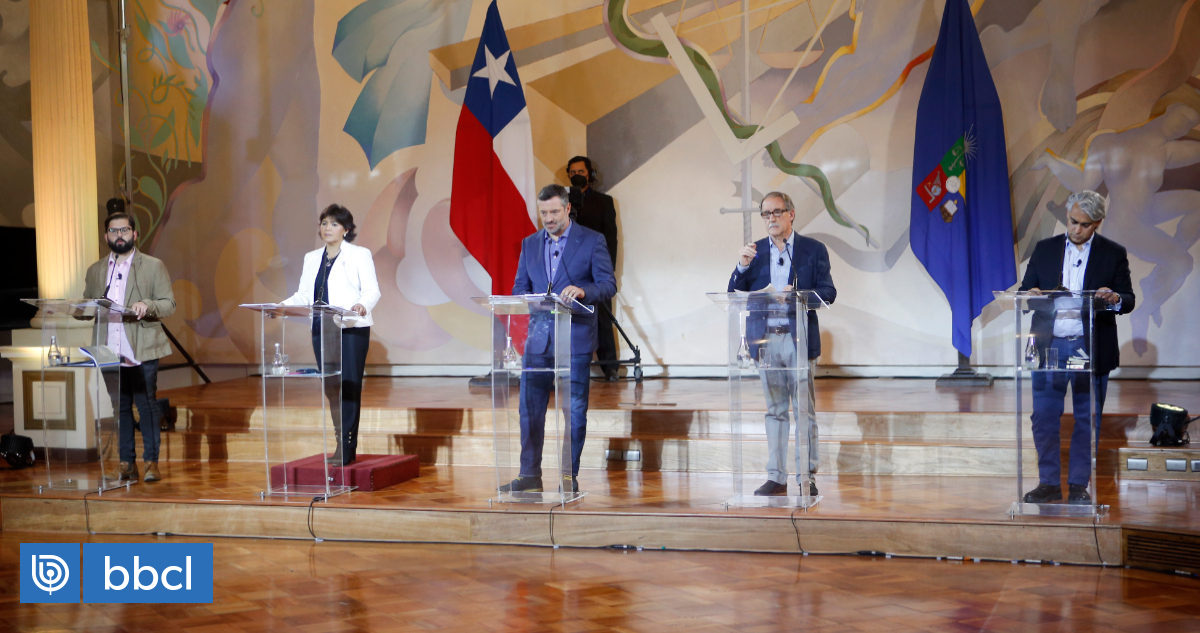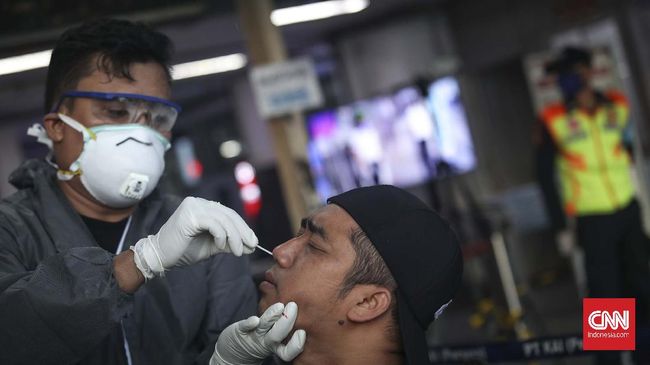This Monday, November 1, the presidential candidates Gabriel Boric, Yasna Provoste, Sebastián Sichel, Eduardo Artés and Marco Enríquez-Ominami, they reached the Central House of the University of Chile.
This, to face in a new debate only 20 days of doing it directly at the polls.
In the meeting they confronted their positions on three main themes: Education and childhood; Art, culture and heritage; and Science, innovation, development and sustainability.
The questions were in charge of the journalists Sergio Campos, Yasna Lewin, Paula Molina, Jennifer Abate, Rodrigo Vergara, Antonella Estévez and Patricio López.
The debate was jointly organized and broadcast by UChileTV, Radio Cooperativa, Radio Universidad de Chile.
To the meeting, were summoned all the aspiring to The coin, and had all the necessary social and health measures.
Presidential candidates on education and childhood
In the first block, the first to answer was Gabriel Boric, who pointed out that “there is a conflict in what has been understood as freedom of education.”
By the way, he explained, “since the implementation of market education, that freedom has been exclusively restricted to those who can pay for it (…) As long as we guarantee free, quality public education for everyone, I have no conflict with the principle of freedom of education ”.
While Yasna Provoste, He assured that “we have a clear conviction that, with the resources of the State. It is not possible to profit in education or in what is now established as childcare institutions, such as the Sename network ”.
Sebastian Sichel He referred to initial education, noting that it is “one of the conditions that generate more inequality in Chile.”
Given this, he raised, “We are going to need the private sector to help with coverage.”
First, he explained, “we are going to expand Junji’s network, and finance and increase Junji’s grant amount, which today stands at 280 thousand pesos per child, to improve quality. Second, invite private non-profit organizations to increase coverage ”.
Eduardo Artés, meanwhile, he pointed out that his plan is “to strengthen the public sector until it is the only one that really remains, because that way he will be able to claim justice ”.
To close the first block, Marco Enriquez-Ominami referred to the Sename crisis and assured that it would be solved “It is going to require more State.”
This need, he continued, “is going to require that all private homes have firm state tutelage and think differently about children (…). The State of Chile should not speak of them from suspicion or from a protectionism that has also been a disaster ”, he pointed.
Arts, culture and heritage
The second block of the presidential candidates on how to improve working conditions for those who they work in the world of art and culture.
In this regard, Boric pointed out that it is necessary “Recognize the existence of multiple cultural circuits that are in tremendous precariousness.”
This, along with “increasing the budget in Culture to 1%” and “ending the logic of competition”.
Meanwhile, Provoste explained that its program plans to triple the budget of the Ministry of Cultures, Arts and Heritage, which today is 0.3%.
This point generated debate with Boric, due to the way the figures were nominated.
It was finally settled by both candidates agreeing that they aim for an amount close to 1%. He also pointed out that “it is the duty of the State to finance memory sites and that they also guarantee non-repetition.”
For his part, Sichel assured that “The law of donations should be the great vehicle of private contribution”, including SMEs and entrepreneurs.
“What we have to do is a large network of private individuals, of NGOs that allocate the funds, so that we do not have at the end a kind of cultural sector serving politics and that, therefore, it is assigned by finger ”, he pointed.
Artés was in favor of “End VAT on books and promote reading.”
Regarding the workers of culture and the arts, he pointed out that “they need state support (…) and also unemployment insurance. This has been part of their mobilizations, likewise the right to retirement ”, added.
ME-O spoke of establishing a “subsidy to demand reactivates supply” consisting of delivering a bonus of $ 50 thousand for each young person “So that they go to the theater or the cinema.”
He also referred to the work of the Constitutional Convention, where he believes that “The right to culture will be established.”
Face-to-face candidates on Science and Innovation
The closing block of the presidential candidates was asked about issues associated with Sciences, innovation, research and sustainability.
In this regard, Boric assured that he hopes to be “the first ecological government in the history of Chile” and for this he intends “Create fair transition committees.”
“Help those companies that are polluting to move towards other types of jobs that can be sustainable and sustainable with the environment ”, said.
Asked about whether her program “It falls short” In budgetary terms for the scientific part, the candidate Provoste explained that “no country develops solely from public effort in the scientific and technological field. Here too a private effort is required ”.
To address challenges such as vaccine production, Provoste noted that they will resume “An alliance that should never have been lost between public universities and the State.”
Sichel, meanwhile, assured that he is in favor of the revision of the Water Code carried out by Congress but that he does not think “necessary” include it in your program.
Regarding his promise to end the sacrifice zones, the candidate acknowledged that “perhaps it is one of the most complex things about the program, but yes, if we have to expropriate, if we have to remove, if we have to change the regulation ”.
Artés, for his part, defended his idea of promote nuclear energy in Chile.
“It is not crazy to raise the need to work with all the possibilities of energy. Without energy we have no industry, without industry we will not develop science or technology, and without them clearly we will not be able to have a sustainable country ”, said.
Finally, ME-O proposed raising investment in science and technology to 2 points of GDP, incorporate the gender perspective at both management and research levels and sign the Escazú Agreement.
“Science and technology need institutions, this is how productivity is measured. That idea that nobody is given any order, and that for everyone simply chaos is not our thing “, assured.
You can check the full debate of the presidential candidates In the following link.
– .


